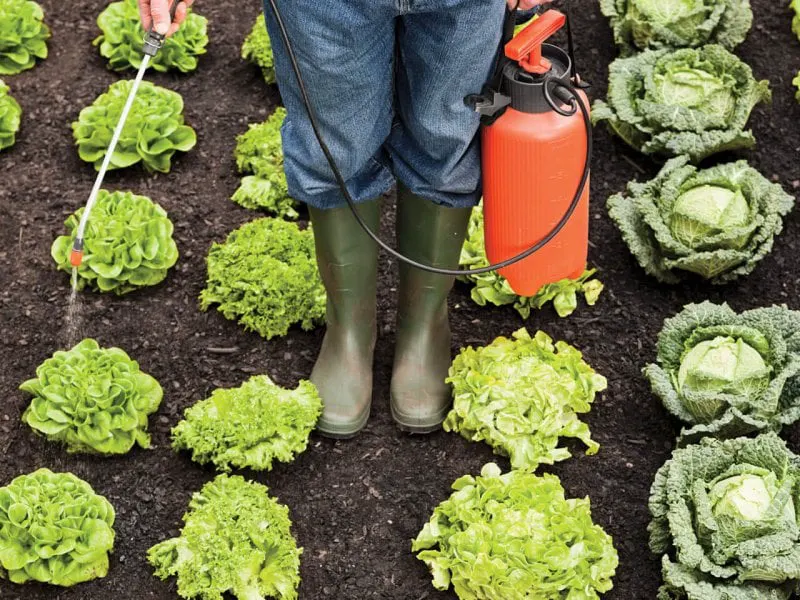‘In the Weeds’: Answering the question—Do biotech crops increase pesticide use?
‘In the Weeds’: Answering the question—Do biotech crops increase pesticide use?
Eva Greenthal, Greg Jaffe | Center for Science in the Public Interest | April 19, 2021
XLinkedInFacebookRedditBlueskyThreads


At CSPI, we set out to answer the question of whether GE crops increase the use of pesticides, and dove into the weeds of the available data [in] our new report, “In the Weeds: Understanding the Impact of GE Crops on Pesticide Use.”
[su_panel color=”#3A3A3A” border=”1px solid #3A3A3A” radius=”2″ text_align=”left”]To read the full CSPI report, click here.[/su_panel]
Here are our topline findings:
- GE insect-resistant crops have been associated with a significant reduction in insecticide sprays across all crops engineered with traits for insect resistance…
- Since glyphosate-tolerant crops became widely adopted in the early 1990s, use of glyphosate and overall herbicides has increased in corn, soybean, and cotton (as well as in non-GE crops like wheat and barley).
- However, trends in herbicide use are better measured by changes in toxicity (volume X toxicity) rather than by volume alone, as adoption of herbicide-tolerant crops has changed the mix of herbicides used.
- Acute (or short-term) toxicity of overall herbicide use after the introduction of GE crops decreased for all three major crops (corn, soybean, and cotton) and chronic (or long-term) toxicity of herbicides decreased by 78% in soybean, but increased by 7% in corn and by 91% in cotton.
Follow the latest news and policy debates on sustainable agriculture, biomedicine, and other ‘disruptive’ innovations. Subscribe to our newsletter.
Our report calls for caution in pesticide use going forward, noting recent trends that may threaten progress made with the adoption of GE crops.
Read the original post
XLinkedInFacebookRedditBlueskyThreads

 | Videos | More... |

Video: Nuclear energy will destroy us? Global warming is an existential threat? Chemicals are massacring bees? Donate to the Green Industrial Complex!
 | Bees & Pollinators | More... |

GLP podcast: Science journalism is a mess. Here’s how to fix it

Mosquito massacre: Can we safely tackle malaria with a CRISPR gene drive?

Are we facing an ‘Insect Apocalypse’ caused by ‘intensive, industrial’ farming and agricultural chemicals? The media say yes; Science says ‘no’
 | Infographics | More... |

Infographic: Global regulatory and health research agencies on whether glyphosate causes cancer
Does glyphosate—the world's most heavily-used herbicide—pose serious harm to humans? Is it carcinogenic? Those issues are of both legal and ...
 | GMO FAQs | More... |

Why is there controversy over GMO foods but not GMO drugs?
Genetic Literacy Project

How are GMOs labeled around the world?
Genetic Literacy Project

How does genetic engineering differ from conventional breeding?
Genetic Literacy Project
 | GLP Profiles | More... |

Alex Jones: Right-wing conspiracy theorist stokes fear of GMOs, pesticides to sell ‘health supplements’




 Trust issues: What happens when therapists use ChatGPT?
Trust issues: What happens when therapists use ChatGPT? Fighting deforestation with CO2: Biotechnology breakthrough creates sustainable palm oil alternative for cosmetics
Fighting deforestation with CO2: Biotechnology breakthrough creates sustainable palm oil alternative for cosmetics Viewpoint: Video — Big Solar is gobbling up productive agricultural land and hurting farmers yet providing little energy or sustainabilty gains
Viewpoint: Video — Big Solar is gobbling up productive agricultural land and hurting farmers yet providing little energy or sustainabilty gains California, Washington, Oregon forge immunization alliance to safeguard vaccine access against federal undermining
California, Washington, Oregon forge immunization alliance to safeguard vaccine access against federal undermining Viewpoint — Fact checking MAHA mythmakers: How wellness influencers and RFK, Jr. undermine American science and health
Viewpoint — Fact checking MAHA mythmakers: How wellness influencers and RFK, Jr. undermine American science and health 30-year-old tomato line shows genetic resistance to devastating virus
30-year-old tomato line shows genetic resistance to devastating virus The free-range chicken dilemma: Better for birds, but with substantial costs
The free-range chicken dilemma: Better for birds, but with substantial costs ‘You have to treat the brain first’: Rethinking chronic pain with Sanjay Gupta
‘You have to treat the brain first’: Rethinking chronic pain with Sanjay Gupta
